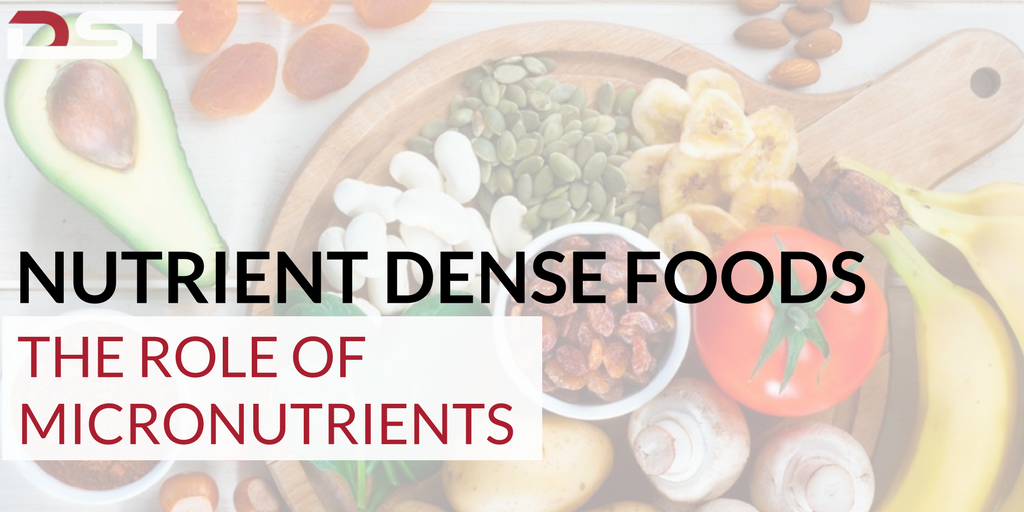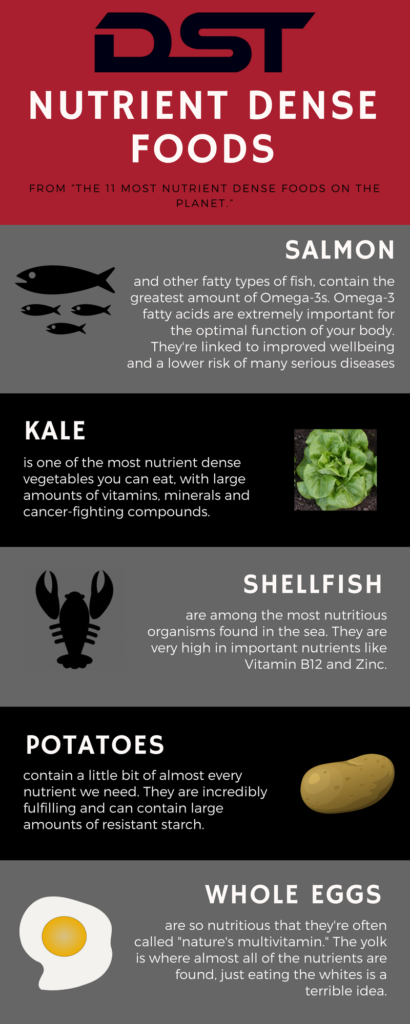Nutrient Density refers to the concentration of micronutrients (mainly vitamins and minerals, but the term micronutrients also encompasses phytochemicals, essential fatty acids and essential amino acids) per calorie of food.

Nutritionally dense foods supply a wide range of vitamins and minerals (or high levels of a specific, important vitamin or mineral) relative to the calories they contain. Whereas while low nutritionally dense foods may supply a lot of energy, they lack the nutrients that our body needs. Any dietary template can contain a mixture of high and low nutrient density foods, so it’s our overall eating pattern that matters most.
The focus when meal prepping, should include fruits, veggies, whole grains, low-fat or fat-free milk and dairy products, nuts, beans, seeds, turkey, chicken, fish and lean cuts of meats.
Fruits and vegetables also contain phytochemicals that may help reduce the incidence of heart disease, diabetes and cancer. The foods that were listed above provide fewer calories, but are excellent sources of nutrients! Those daily nutrients we need are the B-vitamins, vitamins A, C, D and E, protein, calcium, iron, potassium, zinc, fiber and monounsaturated fatty acids.
I read a fantastic article by Kris Gunnars while doing some extra digging for different foods listed in the infographic below:

Empty calorie foods are cheaper and are more readily available than most nutrient dense foods. A common occurrence is that we start to get lazy with meal prepping and go with the easy way out at the gas station, or drive thru, out of convenience. This habit that we would create if we fall off track and take the “easy” route would have negative effects on our health! We CAN’T give in!
Examples of what you would call “empty calorie” food/drinks:
- Cake
- Cookies
- Doughnuts
- French Fries
- Potato Chips
- Candy
- Soda and Energy Drinks
Eating foods dense in micronutrients (vitamins, minerals) is just as important as eating foods with the three macronutrients (fat, protein, carbohydrates). A balanced diet includes all of these nutrients – check with your doctor or a nutritionist to discuss what a balanced diet for you looks like!
Resources:
“More types of nutritionally dense foods…”
Gunnars, Kris. “The 11 Most Nutrient Dense Foods on The Planet.” Healthline, Healthline Media, 22 June 2017, www.healthline.com/nutrition/11-most-nutrient-dense-foods-on-the-planet#section11.

Leave a Reply